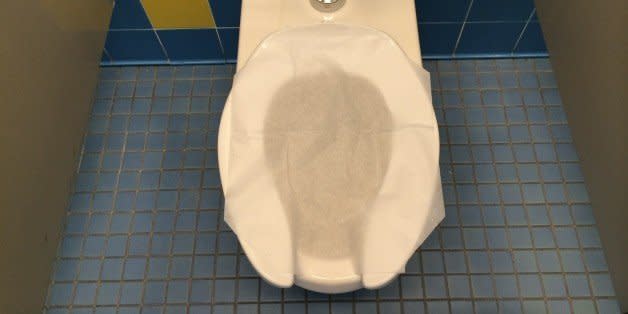Why Using Toilet Seat Liners Is Basically Pointless

Are you one of those people whoalwaysgrabs a paper liner before sitting down on the loo? Surely, you do so to prevent catching a disease from someone else's, er, splashes that may be left on the toilet seat.
Well, turns out, those liners may have more to do with providing comfort and reassurance to the user than actually doing anything to prevent disease, says infectious disease specialist Dr. William Schaffner, M.D., a professor of preventive medicine at the Vanderbilt University Medical Center.
"That’s because toilet seats are not a vehicle for the transmission of any infectious agents -- you won’t catch anything," Schaffner explains to HuffPost. Toilet seats were once thought to be a way of transmitting gastrointestinal or sexually transmitted infections, but that idea has since been refuted in research.
Basically, the reason why those liners exist is because of toilets' inherent "ick" factor, he says.
That's not to say that there aren't disease-causing bacteria -- such as E. coli and streptococcous -- on a toilet seat. But as Dr. Philip Tierno, M.D., points out to Everyday Health, theskin on our behindsserves as an effective, protective barrier.
Whatdoeshelp to tamp down on the spread of gastrointestinal illness is hand-washing. After all, the Centers for Disease Control and Prevention reports that usinggood old soap and water to wash your handscould lower diarrheal disease-related deaths as much as 50 percent. (Toproperly wash your hands, wet them with water, apply soap, and then lather and scrub for at least 20 seconds before rinsing with water.)
Want to know more about why most of us shouldn't be too concerned about letting our bare hineys come into contact with a bare toilet seat? Watch the video below.
This article originally appeared on HuffPost.

